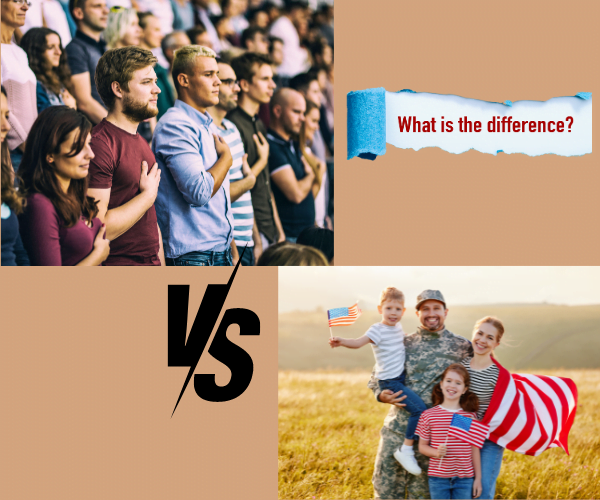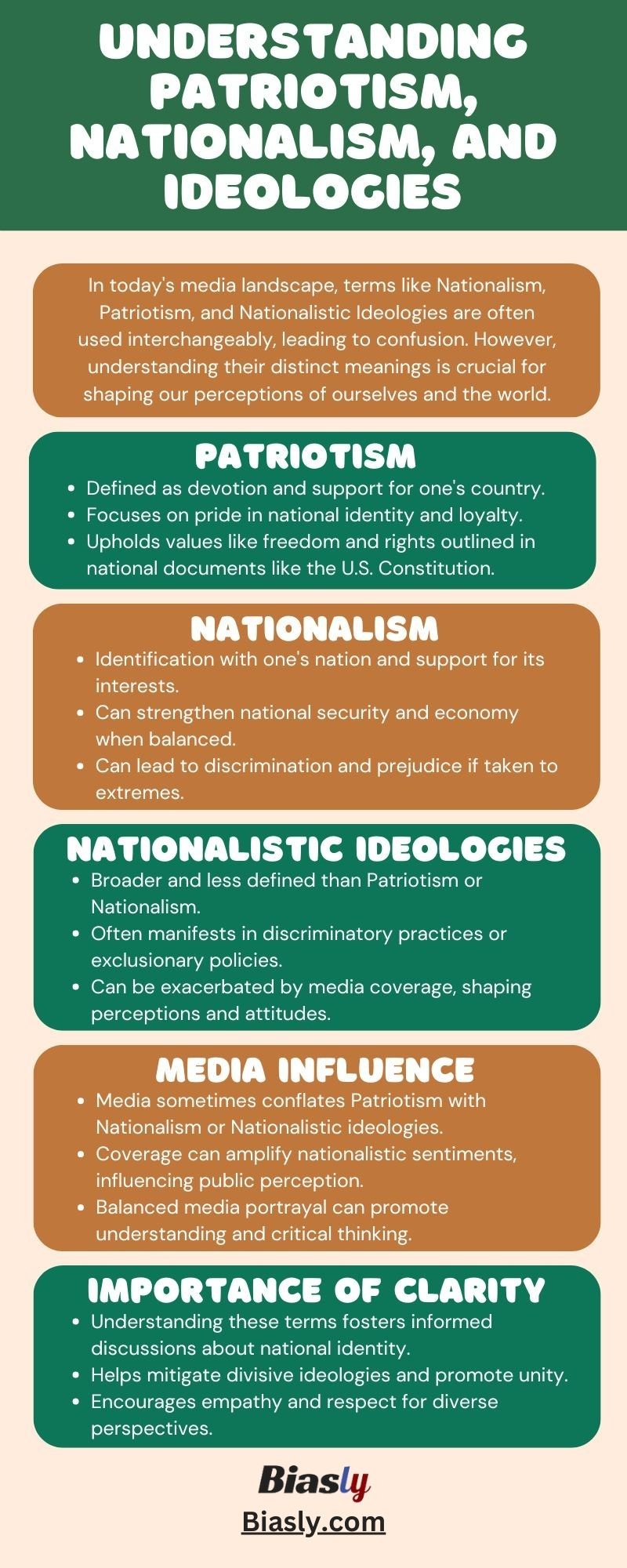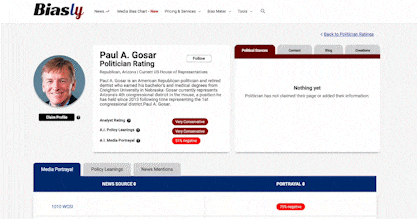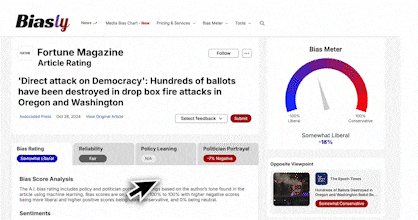
In today’s age of news and media, it is very easy to get terms like Nationalism, Patriotism, and Nationalistic Ideologies confused as they are commonly interspersed and interchanged with each other. It is vital, however, to note and see the differences and values in each term, as they are part of how we see not only ourselves but how we see those in the world around us as well.
American Patriotism as its Core
Patriotism is defined as, “The quality of being patriotic; devotion to and vigorous support for one’s country,” by the Oxford Dictionary. What this essentially means is that Patriotism is loyalty to a unified nation and a sense of pride in that nation. Where the media tends to get this one mixed up is in viewing it as to do with foreign policy, which can be an aspect of patriotism as shown in the movie The Patriot.
American patriotism is a profound admiration for freedom and the rights granted and declared through the U.S. Constitution and the Declaration of Independence.
Just picture this: Our American patriotism is as vast and open as our “spacious skies”, as rich and golden as our “amber waves of grain.” Its beauty mirrors every verse of that classic tune, “America the Beautiful,” encapsulating a deep-seated love and loyalty towards a nation. A nation marked not just by its physical grandeur, but by the diverse tapestry of its people, their stories, their dreams.
Just like a seed nurtured in the fertile soils of the country’s rich history and ideals, this patriotism takes root. It fuels an ongoing dream, one that transcends state lines and regional boundaries, forging unity—a “brotherhood from sea to shining sea.”
The Patriot movie is a historical American war drama film made in 2000 and set during the American Revolution in South Carolina. This movie in particular pits loyalty to a former nation, Great Britain, against patriotism and independence to a new nation, the United States. Throughout the movie, it shows the loyalty of the Continental soldiers for the fledgling new nation and the cause of freedom from oppression against the powerhouse of the time, Great Britain.
The American colonies could have chosen to go with the status quo and continued to endure abuse from the British government which included:
- High Taxes: Viewing the colonies as a convenient cash cow, the British Crown levied crippling taxes on the colonists, a burden felt in every transaction–from purchasing paper under the Stamp Act to sipping tea under the Tea Act.
- Land-Leases (Without Owning Their Own Property): Unable to truly call the land their own, the colonists were forced to operate under restrictive land-leases, sowing their seeds on soil that remained under the control of distant British landlords.
- Little Representation Being That America Was Abroad: Despite being thousands of miles away from the throne, the colonists found themselves governed by laws conceived in British parliament houses, their voices muted by the vast Atlantic, and their representation negligible.
- Limited Trade Rights with Foreign Countries: The iron grip of British trade laws strangled the colonies’ economic potential, prohibiting them from tapping into profitable trade networks with other nations and forcing them to navigate a narrow economic channel defined by Britain’s interests.
- Housing and Feeding British Soldiers: The presence of Redcoats was a constant reminder of British dominion, with colonists obliged to house and feed these unwelcome guests under the Quartering Act, turning their homes into barracks for the very forces that suppressed them.
- Lack of Freedom of Assembly: The colonists found their rights to gather and discuss the pressing issues of the day curtailed, as British authorities often prevented them from holding public assemblies, choking the life out of their budding democratic tradition.
- Lack of Freedom of Speech: Muzzled by the British Crown, the colonists were denied the fundamental right to express their thoughts and criticisms freely, with colonial journalists and outspoken citizens living under the looming threat of prosecution.
- Lack of Freedom of Religion: Despite fleeing from religious persecution, many colonists still found their spiritual beliefs under the watchful eye of the British Crown, whose continued push for the Church of England often brushed against the diverse tapestry of faiths in the colonies.
- Lack of Private Property Rights: The British Crown would often seize property without fair compensation, turning the dreams of the colonists into nightmares as they lived in constant fear of losing their homes and lands to an authority they barely understood.
- No Trial by Jury: A fair trial was an elusive dream for the colonists, who were often herded into courtrooms presided over by British-appointed judges, denying them the universally accepted right to trial by a jury of their peers.
Americans chose to subdue Colonial overreaches on independence and fight for freedom of religion, private property, freedom of speech, and every other right guaranteed in the founding U.S. Constitution.
Take for example, an article written by Yannick Giovanni Marshall, titled: “Patriotism Is Racist.”
In the opinion article, Marshall states:
“True patriotism and good patriotism are half-hearted attempts to launder xenophobia and ethnocentrism. It legitimizes discrimination against foreigners on the basis of their foreignness. For the patriot, all history is revisionist history. The constitution becomes a document that has always harboured within it a promise of liberty that was to be perfected and extended outward, generation after generation. It is not the blueprint for a democratised white supremacy – despite how its project eventually played out.”
While the article above is an opinion article, the way that Marshall describes and defines patriotism is in a very tainted and skewed way. Instead of looking at it from multiple angles, he decides to look and examine a pessimistic side that can be shaped and morphed into describing it as something that it is not as a whole.
Rather, patriotism is support for one’s nation, usually in a positive way, focusing on the freedoms, benefits, and protection it provides. Patriotism still recognizes injustice and seeks to prevent harm or abuse incurred to any individual by other imperfect individuals including in the form of prejudice of any kind, as is reasonably lawful. When the law is played out fairly, it is a wonderful country to live in. America, since its founding, hasn’t had a perfect record at this, but as time has gone on, its record continues to improve.
Patriotism is an appreciative perspective that acknowledges our presence here and the unique set of circumstances that led to the formation of our nation. This sentiment frequently finds expression in diverse aspects of American culture.
For example, just as the sweeping melody of “America the Beautiful” captures the vast beauty of our nation, American patriotism too paints with a broad brush. It varies, just like the diverse landscapes of our country. For some, it takes form in the swell of pride that comes from singing the national anthem, or the shared joy of watching fireworks light up the night sky on the Fourth of July.
But patriotism doesn’t stop at ceremonies and holidays. For many, it’s a commitment to rolling up their sleeves and getting involved in civic life. It’s about casting a vote, lending a voice in the “alabaster cities” of our democracy, and not being afraid to advocate for change when those cities or the ideals they represent lose their shine.
In every instance, American patriotism is a heartfelt dedication to a nation that has given so much to its people—and continues to hold a promise of more. It’s about believing in that promise and stepping up to ensure it holds true.
Supporting America above all else would be classified as more nationalistic than patriotism, which is another example of how the media distorts and confuses the two. It also represents a choice where someone chooses to view something in a negative light without considering the positives.
Nationalism
Nationalism is defined as “Identification with one’s own nation and support for its interests, especially to the exclusion or detriment of the interests of other nations,” by Oxford. What this essentially means is that ‘America First’ is a mentality that those in the country would hold. Or if you lived in another country, it would be ‘China First’ or ‘Russia First’ depending on where you were from. Nationalism is a sub-branch of patriotism and if conveyed and executed properly it can strengthen America positively by ensuring national security, healthy borders, a stronger U.S. economy, and proper protection of American citizens and businesses globally. However, if taken too far it can be the cause of discrimination against others.
When Nationalism is taken too far, it turns into Nationalistic ideologies. Nationalistic beliefs can lead to negative feelings for others globally such as:
- Nations going at war one with another.
- The favoring of countries over others without ample evidence to do so.
- The inhuman treatment of foreigners and citizens of countries.
- Domestic hate speech and prejudice can increase when nationalism is taken too far. Nationalism in itself can be a good thing as we explain later, but when taken too far, it can be detrimental to one’s own society and cause caste division, as seen in many countries around the world.
When talking about Nationalism and how it is portrayed in the media, The Harvard International Journal states:
“The nationalist mobilizations in the late twentieth century are influenced by television’s pictures and its capacity to construct an imaginary national community at a distance. The directness of television’s picture and sound permits a focus on a “local” and “isolated” event in order to convert it to an event of national or international interest. Television can better coordinate the demands and aims of the “distant others”; it is a friendly tool for making the narrative feasible at a distance as well as creating ethnic group identity, especially when the development of the TV stations belongs to or addresses national or ethnic minorities.”
What this shows is that while we as Americans certainly do hold a certain level of Nationalism, it has only been heightened by media coverage and television. Having to be number one, having to outlast our rivals like Russia and China in foreign affairs in an arms race (on both sides of the aisle), all boil down to not wanting to play second fiddle to anyone else. And news outlets feed on this fire and play it up as a way to spike our sense of Nationalism and pride in our country.
However, in all fairness, protection from countries that don’t have our best interests is critically important, and having an edge can vastly ensure safety and economic freedom. Thus, the true distinction between Nationalism and non-Nationalism should start with unilateral disarmament by every nation. Once this occurs, then we can have a much more healthy form of Nationalism and humankind can become more unified.
Differences Between Patriotism, Nationalism, and Nationalistic Ideologies
While patriotism, nationalism and nationalistic ideologies all might seem and look similar, there are important differences between them. Most notably, nationalistic ideologies is a very broad term, and is not as defined as Patriotism or Nationalism.
Nationalism can turn into nationalistic ideologies when taken too far and can be discriminative of races and people, but cannot be sharply defined as such solely. Identifying the differences between these three important terms is crucial in how we view not only ourselves but our country and other countries and their citizens as well.
The media can often conflate the terms patriotism, nationalism, and nationalistic ideologies such as white and Christian nationalism…
One example is an NPR article that calls examples of American patriotism as nationalism and says that there is no difference between patriotism and nationalism. However, since the two have different connotations (patriotism as positive and nationalism as negative), saying that patriots are in fact nationalists can be dangerous talk.
The American Progress article conflates white nationalism with white supremacism and separatism. How similar or different they actually are can differ from person to person. Another example is the previously mentioned Al Jazeera article that paints patriotism as bad and only points out the negative aspects of patriotism while listing none of the positives, thereby painting patriotism in a negative light, which would be in fact Nationalistic ideologies, not even fitting the definition of Nationalism.
Understanding the differences between each of these ideologies can make or break our politics and unity in America. It is critical that we work together, use proper definitions and seek understanding, empathy, and compassion for one another.


























